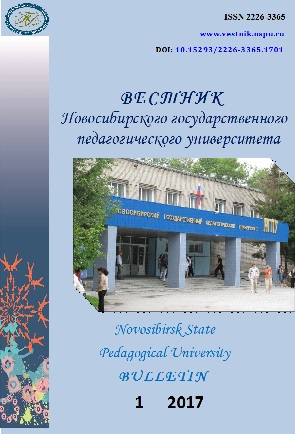Наставничество в системе непрерывного
профессионального развития педагогических кадров в Великобритании
The essence of mentoring in continuing professional development of teaching staff in Great Britain
Author(s): Elena Aleksandrovna DudinaSubject(s): Higher Education , Sociology of Education
Published by: Новосибирский государственный педагогический университет
Keywords: Mentoring; coaching; tutoring; Initial Teacher Education; Continuing Professional Development; models of mentoring; stages of professional development; teaching staff;
Summary/Abstract: Introduction: The article is devoted to the British experience of enhancing practical learning within Initial Teacher Education (ITE) and Continuing Professional Development (CPD) of educators through the mentoring process. The purpose of the article is to identify the essence, key features and attributes of mentoring within the main stages in teachers’ professional development.Materials and Methods: The research methods include theoretical and comparative anal-ysis of a range of prominent theoretical works, research reports and regulatory documents on mentoring within various educational fields. In order to provide a comparative analysis, the author traces the evolution of research into mentoring in British, Soviet and contemporary Russian education, psychology and philosophy.Results: The author emphasizes the enhanced role of mentoring in the context of ITE and CPD in Great Britain, identifies the distinctive features of such close notions as mentoring, coaching and tutoring, reviews and analyses the classifications of mentoring models. The ma-jority of researchers point out the authoritarian top-down traditional model based on the transference of knowledge and the reciprocal model, which is concerned with collaborative com-plementary relationship, based on support, facilitation, emotional connection and sharing of power between mentors and mentees.Conclusion: The paper concludes that mentoring is a person-centered process based on professional values, support, guidance, facilitation, encouragement, enabling, and collabora-tion which contributes significantly to continuity of education, as well as professional and per-sonal development of teaching staff. The main types of mentoring include mentoring of student teachers, mentoring for induction, mentoring for career transitions (for progression), mentoring for challenge, and peer-mentoring. Mentoring is a proactive reciprocal process aimed at devel-opment, improvement and growth.
Journal: Вестник Новосибирского государственного педагогического университета
- Issue Year: 7/2017
- Issue No: 1
- Page Range: 49-62
- Page Count: 14
- Language: Russian

